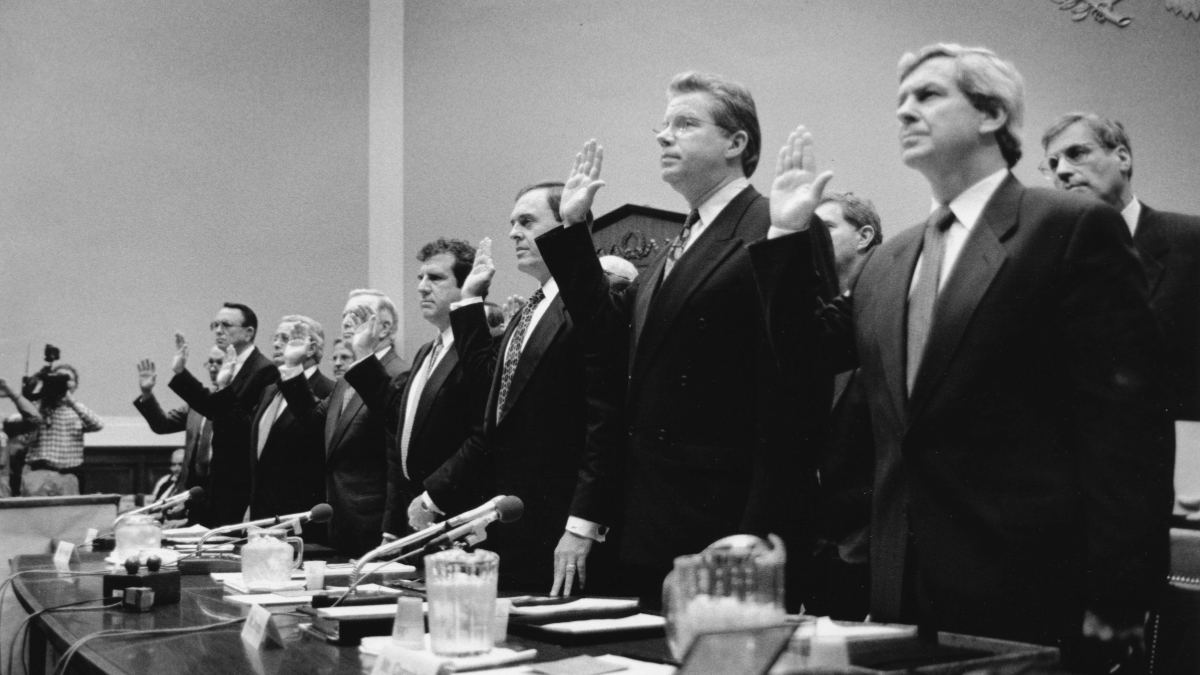Big Tech is Trying to Burn Privacy to the Ground–And They’re Using Big Tobacco’s Strategy to Do It | TechPolicy.Press
www.techpolicy.pressWith the looming presidential election, a United States Supreme Court majority that is hostile to civil rights, and a conservative effort to rollback AI safeguards, strong state privacy laws have never been more important.
But late last month, efforts to pass a federal comprehensive privacy law died in committee, leaving the future of privacy in the US unclear. Who that future serves largely rests on one crucial issue: the preemption of state law.
On one side, the biggest names in technology are trying to use their might to force Congress to override crucial state-level privacy laws that have protected people for years.
On the other side is the American Civil Liberties Union and 55 other organizations. We explained in our own letter to Congress how a federal bill that preempts state law would leave millions with fewer rights than they had before. It would also forbid state legislatures from passing stronger protections in the future, smothering progress for generations to come.
Preemption has long been the tech industry’s holy grail. But few know its history. It turns out, Big Tech is pulling straight from the toxic strategy that Big Tobacco used in the 1990s…
A place to discuss privacy and freedom in the digital world.
Privacy has become a very important issue in modern society, with companies and governments constantly abusing their power, more and more people are waking up to the importance of digital privacy.
In this community everyone is welcome to post links and discuss topics related to privacy.
Some Rules
- Posting a link to a website containing tracking isn’t great, if contents of the website are behind a paywall maybe copy them into the post
- Don’t promote proprietary software
- Try to keep things on topic
- If you have a question, please try searching for previous discussions, maybe it has already been answered
- Reposts are fine, but should have at least a couple of weeks in between so that the post can reach a new audience
- Be nice :)
Related communities
much thanks to @gary_host_laptop for the logo design :)
- 0 users online
- 108 users / day
- 435 users / week
- 1.32K users / month
- 4.54K users / 6 months
- 1 subscriber
- 4.62K Posts
- 116K Comments
- Modlog







do they need to? I don’t think so. they could just follow privacy best practices everywhere, if they can’t afford to do whatever they want with user and visitor data.
they don’t want this solution, however, but in my understanding instead to force every state to have weaker privacy laws
Why not? How can you be sure that all these laws are going to be about all the same things and not have many tricky edge cases? What would keep them from being like that? Again, these laws give unique rights to residents of their respective states to make particular demands of websites, and they aren’t copy pastes of each other. There’s no documented ‘best practices’ that is guaranteed to encompass all of them.
I can’t speak to what they really want privately, but in the industry letter linked in the article, it seems that the explicit request is something like a US equivalent of the GDPR:
To me that seems like a pretty sensible thing to be asking for; a centrally codified set of practices to avoid confusion and complexity.